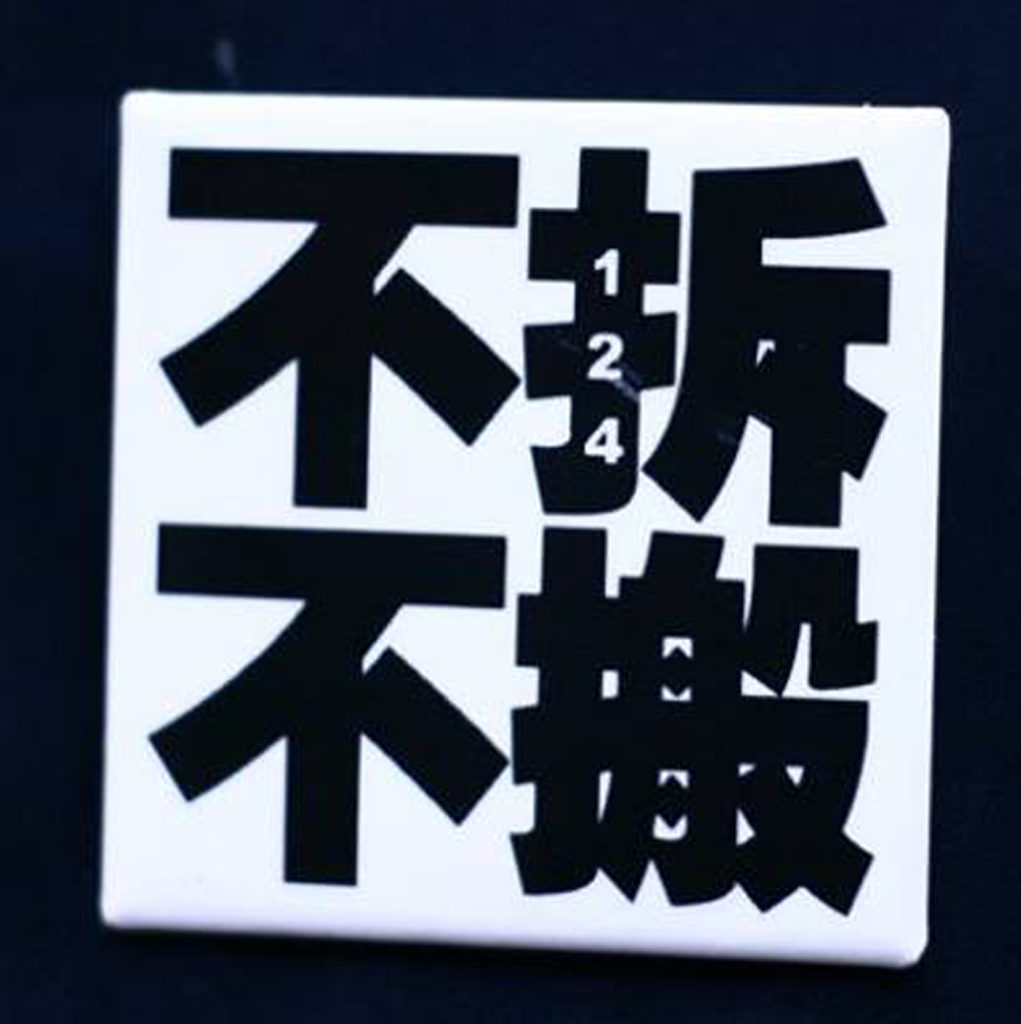
Cut the CRAP! Chinatown Concern Group fights Vancouver’s rezoning and gentrification of Chinatown
 City staff began preparing an update on the Chinatown Economic Revitalization Action Plan (CRAP) in October of last year, which included two open houses for the public to share feedback regarding the proposed changes. As per usual with consultation processes, the City failed to notify residents in many buildings in Chinatown, Strathcona, and the Downtown Eastside. Those who received the small notice cards thought they were spam, or could not understand the Chinese translation. At the two open house dates, the vast majority of the displays only had the titles translated into Chinese, and very inadequate interpretation done by City staff, in addition to the absence of a Mandarin interpreter.
City staff began preparing an update on the Chinatown Economic Revitalization Action Plan (CRAP) in October of last year, which included two open houses for the public to share feedback regarding the proposed changes. As per usual with consultation processes, the City failed to notify residents in many buildings in Chinatown, Strathcona, and the Downtown Eastside. Those who received the small notice cards thought they were spam, or could not understand the Chinese translation. At the two open house dates, the vast majority of the displays only had the titles translated into Chinese, and very inadequate interpretation done by City staff, in addition to the absence of a Mandarin interpreter.
When Chinatown Concern Group asked for the materials to be fully translated, it took over a month to get the translations, and the City’s excuse to the request for certified interpreters was a shortage of funds and time. The City’s complete disregard for the language rights of entire migrant communities that already face barriers to accessing information seems purposeful; the consultations are merely a front.
After Chinatown Concern Group held a press conference last November calling out major problems of accessibility and undemocratic consultation processes, the City agreed to hold a third open house in early 2017, as requested. However, the timing was within the first week of lunar new year (festivities last for 15 days) so many residents were busy, and notices were sent to the same buildings that were flyered for the October 2016 open houses less than two weeks prior.
We strongly oppose the CRAP because, contrary to its goals of supporting “innovative heritage, cultural and affordable housing projects,” “preserving Chinatown’s unique heritage,” and “bringing community members together to address issues such as economic growth and heritage retention,” the proposed policy will systematically displace and marginalize the low-income Chinese community even more than the Historic Heights Review of 2011.
Major changes include raising the maximum building height all around, with developments of up to 150 ft (or about 14 stories) on Main Street that will no longer need to apply for rezoning or hold public consultations. New developments also do not need to include any social housing. Buildings over 90 ft only need to include 20% of units as social housing, but not at 1/3 of the renter’s income or at welfare/pension rate.
Another incentive for developers is the proposed 200 foot wide building site fronts. The main reason why condo developers were not attracted to Chinatown in the past was because of height limits from the Historic Area designation and the 25 foot wide lots. City Council, during its public consultation period of the Heights Review in 2009, received feedback of “strong opposition to taller towers.” It also heard that “heritage character and scale [were] most important” and a “concern for impact of development on the low-income community.” But Council still passed it and opened the floodgates for market development in Chinatown. Our elected civil servants have ignored public feedback (that they had knowledge of) in the past, and they are doing it once again with the unpublicized CRAP open houses as a façade for democracy.
Chinatown Concern Group is not opposed to development, but we want equitable development that is in the hands of community members who need it and led by their voices. Our demands are:
- For new buildings of any height to have at least 50% of the floor space dedicated to social housing. In the past we called for a percentage of housing units to be dedicated to social housing, but the City is making social housing units smaller and smaller!
- For all social housing units to be affordable to people on welfare/pension, and to employed low-income people at 30% of their incomes
- For a height restriction of 50 feet across all of Chinatown (in all Historic Areas) for any market development
不要只做門面功夫: 停止貴族化在唐人街!
何盈欣 Beverly Ho, 華埠行動小組 Chinatown Action Group
鄧國煇 Godfrey Tang, 唐人街關注組 Chinatown Concern Group
在去年十月,市工作人員開始對唐人街的經濟振興行動計劃準備更新(CRAP廢話),包括兩次開放日,讓公眾分享有關修改建議反饋。按照通常的諮詢過程,市府未能通知唐人街達孔拿與市中心東區的許多居民。那些收到通知卡的人因為上面沒有充足的內容,以為是垃圾郵件。在前兩個開放的日期,絕大多數的資料只有標題翻譯成中文,和非常不足的市工作人員做廣東話傳譯,完全沒有普通話翻譯。當唐人街關注組要求完整的材料,市府藉口對譯員的資金短缺,竟然用了一個多月。整個移民社區已經面臨著接收信息的障礙,市府完全無視他們的語言權利,似乎故意的,而這些的協商只是一個門面秀。
去年十一月,唐人街關注組舉行新聞發布會,公開了諮詢過程中的缺乏公民知情權和不民主協商的主要問題,市府同意在2017年初進行第三次開放日。然而,時間卻選在農曆新年的第一周(慶祝活動持續15天),許多居民都很忙,通知也只是發送到相同的建築。
我們強烈反對的CRAP,因為它違反了它的原來目的:“創新文化目標,文化經適房項目”,“保護唐人街獨特的遺產”,和“使社區成員共同解決如經濟增長和遺產保留”提出的政策比2011歷史的高度回顧,更是計劃性的逼遷,取代和邊緣化,低收入華人社區。
新建議主要的變化包括:在緬街上增加建築高度,高達150的發展(或14層),將不再需要要求變更土地用途或舉行公開磋商。新的發展也不需要包括任何社會住房。另一個地區,超過90英尺的建築物只需要包含20%個單位的社會住房(這不是租金在租客收入的30%)。對開發商的另一個獎勵是有200英尺寬的建築工地。往時主要原因公寓開發商並無在唐人街開發是因為歷史區域的高度限制和25英尺寬的地段.2009的高度回顧市議會的公眾諮詢期收到的反饋,有“強烈反對高樓”,“遺產特性和樓的規模[是]最重要的“,和”關於發展對低收入社區的影響“,市府還是通過新高度,打開了市場發展在唐人街的閘門。在過去我們選舉的公務員明知而不顧公眾的反饋,他們現在又再次用不好好通知市民來參加開放日的機會做表面工夫。
唐人街關注組並不反對發展,但是我們要公平發展,是社區成員的需要,聽從他們的聲音。我們的要求是:
1對於任何高度的新建築物,至少有50%的建築面積,用於社會住房
2社會住房租金是租客收入的30%
3所有唐人街的高度限制在50英尺



